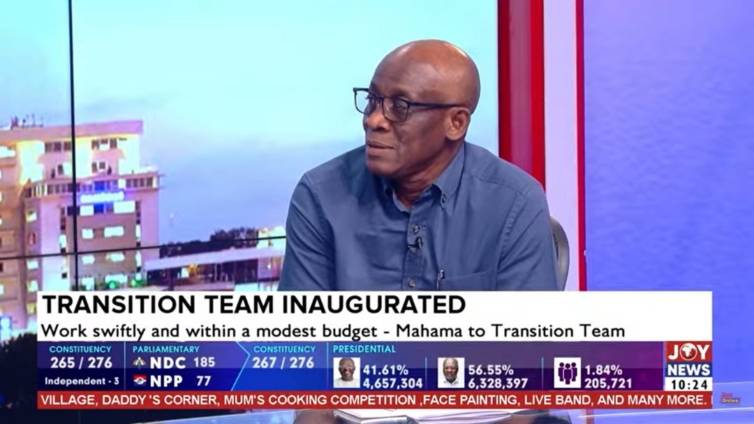Former Finance Minister Seth Terkper has expressed optimism about Ghana's economic recovery, citing positive signals emerging from recent International Monetary Fund (IMF) reports. During a discussion following the inauguration of the transition team in Accra on December 11, 2024, Terkper shared his perspective on the nation's progress toward pre-COVID-19 economic levels.
Outgoing President Nana Akufo-Addo, speaking at the inauguration, revealed his belief that Ghana's economy is rebounding strongly and returning to pre-pandemic performance levels. He highlighted this development as a significant achievement during his administration.
However, Terkper provided a more nuanced view of the situation, pointing out that while the IMF’s assessments align with positive trends, these improvements do not reflect uniform growth across all sectors of the economy.
"There are positive signals, and even the IMF has stated this," Terkper explained during an interview with Joy News. "But the headline growth we are seeing is an average figure and does not mean that every sector is thriving."
Mixed Reactions to Economic Progress
President-elect John Mahama has offered a different perspective, challenging Akufo-Addo's assertion that the economy is fully on the mend. Terkper defended Mahama's cautious stance, emphasizing that some sectors are indeed lagging despite the overall growth figures.
"The caution President Mahama is highlighting is important," Terkper noted. "The headline growth may be driven by industries like oil or other specific sectors, but the IMF’s report makes it clear that certain areas of the economy are still struggling."
He further explained that while industries and export-driven sectors may be showing signs of recovery, other critical areas, such as agriculture and domestic trade, remain vulnerable.
Sectoral Challenges Persist
Terkper stressed that the export-import sector, along with agriculture, continues to face significant hurdles. These issues could extend into the first quarter of the upcoming year, potentially tempering the optimism surrounding the headline growth numbers.
"The vulnerabilities we’re observing are particularly evident in sectors like agriculture and exports. These challenges may persist into the next year unless deliberate efforts are made to address them," he said.
Despite these concerns, Terkper acknowledged that the overall trajectory of Ghana’s economy appears to be improving. This recovery, however, requires careful management to ensure it translates into tangible benefits for all citizens.
The Bigger Picture
While Akufo-Addo has emphasized fiscal discipline and economic resilience during his tenure, critics argue that deeper structural issues remain unaddressed. Mahama and his team have promised to focus on creating more inclusive growth and tackling persistent disparities in economic performance.
As Ghana transitions to new leadership, there is widespread anticipation regarding how the incoming government will build on the existing momentum while addressing the remaining challenges.
Terkper’s remarks underline the complexity of Ghana’s economic landscape. While there are reasons to celebrate progress in certain areas, the journey toward comprehensive recovery and sustained growth remains ongoing.
A Delicate Balancing Act
As Ghana navigates the aftermath of the pandemic and other global economic shocks, the balancing act between achieving macroeconomic stability and addressing sectoral disparities will be critical. The next administration faces the task of ensuring that growth figures reflect improvements in the lives of ordinary Ghanaians.
In the words of Terkper, “Growth cannot be just a headline figure. It must be felt across all sectors, providing opportunities and improving livelihoods. Otherwise, it remains just a statistic."
While optimism about Ghana's recovery is warranted, the road ahead is fraught with challenges. The nation’s economic success will ultimately depend on the ability of its leaders to implement inclusive policies that promote resilience and equitable growth.



No comments yet
Be the first to share your thoughts!